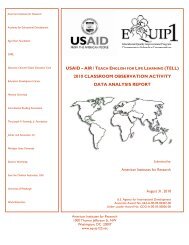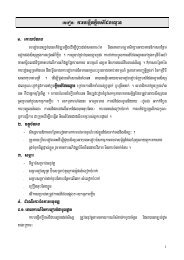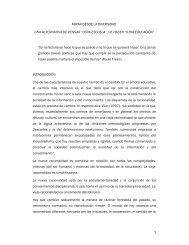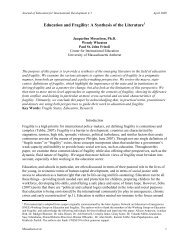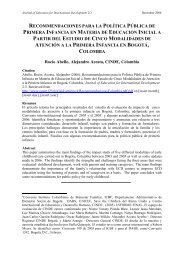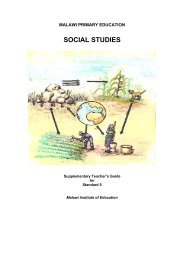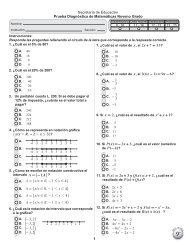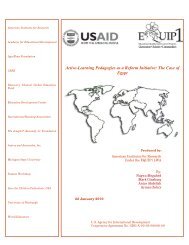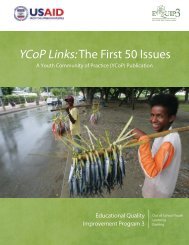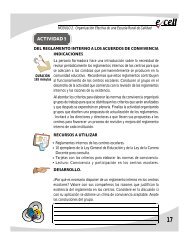The Power of Persistence: Education System ... - EQUIP123.net
The Power of Persistence: Education System ... - EQUIP123.net
The Power of Persistence: Education System ... - EQUIP123.net
Create successful ePaper yourself
Turn your PDF publications into a flip-book with our unique Google optimized e-Paper software.
actors is a never-ending process. <strong>The</strong> evidence <strong>of</strong> the case studies indicates that<br />
while individual ministers’ initiatives can be vulnerable to change, a broad-based<br />
consensus and support reduces that vulnerability and supports a useful degree<br />
<strong>of</strong> stability and sustainability. USAID projects have been in a unique position to<br />
facilitate that interaction from a system perspective, engaging the Ministry as the<br />
central, but not the only, actor in the system.<br />
It is clear from these cases that there are both advantages and limitations to<br />
using projects as vehicles for supporting sustainable reform. In many cases, these<br />
limitations are not due to the project modality itself, but rather to the nature <strong>of</strong><br />
system change and reform. An argument sometimes made against projects is that<br />
they create an unsustainable project bubble, and project activities end abruptly<br />
when funding ends, particularly when they are involved in service delivery.<br />
Critics argue that projects are inherently unsustainable. This valid concern is<br />
<strong>of</strong>ten reduced to a simplistic view that misunderstands the role that projects<br />
can play in a systems approach.<br />
When a pilot or school project is implemented in isolation on the assumption<br />
that successful activities will be picked up and replicated by the MOE, it is easy<br />
to see why they can fail. Implemented on a short-term, small-scale basis, they<br />
can easily disappear without a trace. However, in the context <strong>of</strong> a coordinated<br />
systems approach to development, pilot and field projects can play an invaluable<br />
role in providing visible and effective models, creating confidence in solutions,<br />
generating deep support, ownership, and capacity at the school level, and<br />
providing an input into national policy dialogue. When projects have a coherent<br />
and coordinated mechanism for communications, policy dialogue, and<br />
engagement, these efforts can have a deep effect.<br />
In both Namibia and Nicaragua, consistent and focused support for<br />
implementing the SIP/SSA and Active Schools approaches over a period <strong>of</strong><br />
time resulted in genuine, on-going, system reform. In Egypt, the lengthy<br />
donor support for New Schools and Community Schools provided a basis for<br />
understanding how community involvement could work, and provided political<br />
confidence that enabled and informed reforms—once the conditions were<br />
conducive to reform.<br />
Sustainability<br />
In the context <strong>of</strong> system reform, sustainability is more complex that simply<br />
continuing project activities or initiatives. It is one thing to initiate reforms and<br />
introduce changes at some level in the system—even if at the level <strong>of</strong> activities<br />
and schools. <strong>The</strong> important changes, however, are in people’s attitudes and<br />
152<br />
SECTION 3: SUMMARY fINdINGS ANd CONClUSIONS



